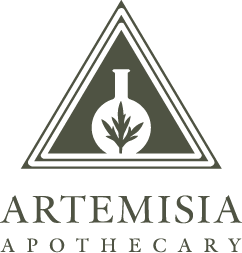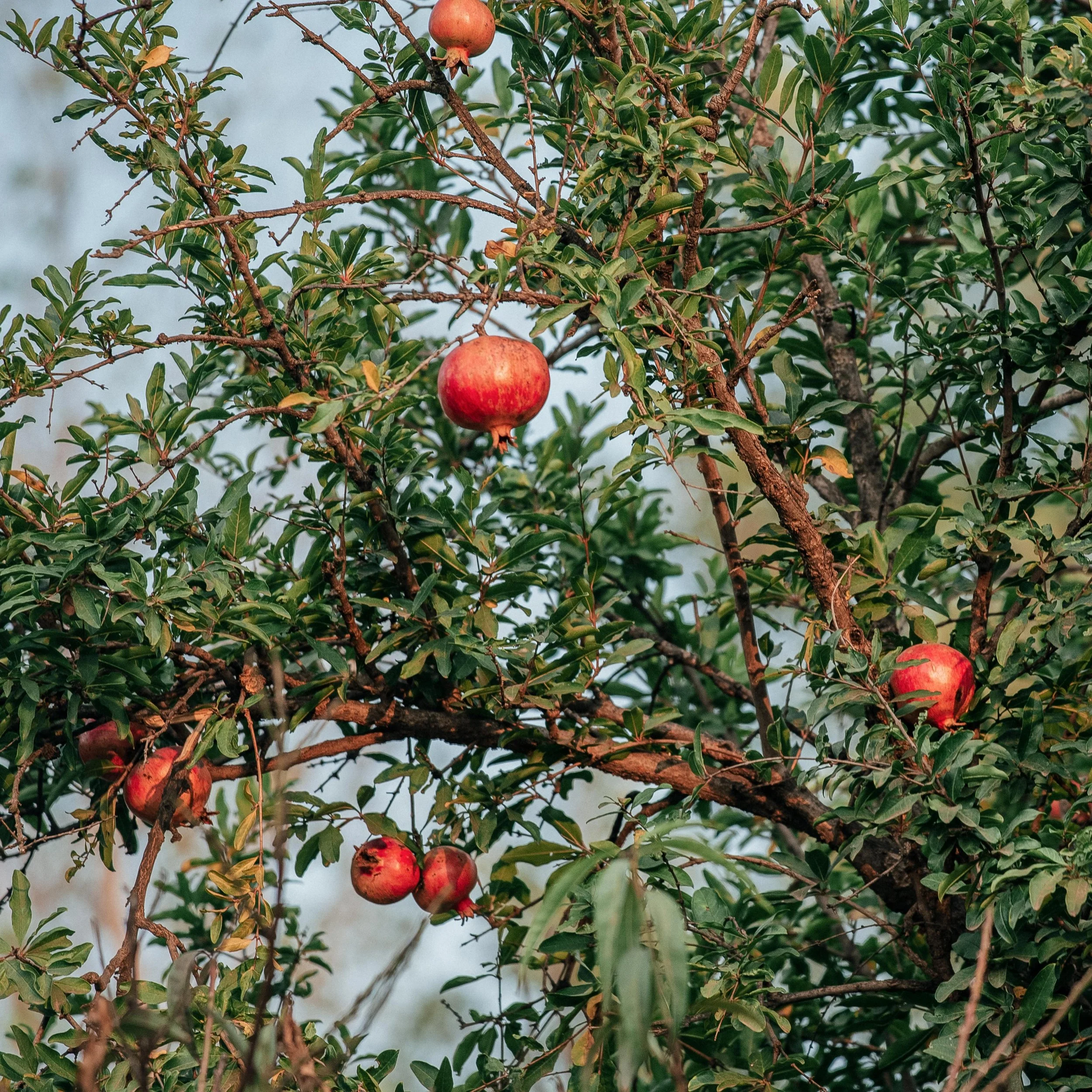Pomegranate Is The New Turmeric
In case you haven't heard yet, there's a new panacea in town. That's right, pomegranate will heal everything that your daily turmeric latte failed to deliver. Your relationships will be better, you won't need Botox and money will magically appear without you actually having to work for it... it may even make you healthier!
Pomegranate is also the perfect follow on from the month of Women's Health content we just completed - and is a central menopausal medicine. Such medicines are greatly needed because menopause is officially gaining ground in the West, with two new diagnoses' being created to categorise younger women starting to experience its effects: perimenopause (the phase before menopause) and early menopause. So whilst menopause continues to be VERY mild in Japan, in the West it's getting harder, stronger & earlier. Pomegranate is almost a complete pharmacy in a single tree, but many of its uses are particularly helpful for women over 30. From a phytochemistry perspective, it achieves this by maintaining healthy estrogen levels, which may also assist in managing vaginal dryness.
In Ayurvedic Medicine, pomegranate fruit is considered very cooling and is used in menopause and summer heat waves alike. This is great because for many people, turmeric will be too heating for them during the summer months, but they still need a regular super food that combats inflammation.
Pomegranate is also full of antioxidant phenolics amongst other things, check out the following list of its many, many benefits!
Cardiovascular diseases
Pomegranate juice is an affluent source of polyphenols with high antioxidant, antiatherogenic, antihypertensive, and anti-inflammatory effects have been shown in limited studies in human and animal models.
Rheumatoid arthritis and osteoarthritis
The severity of arthritis, joint inflammation, and IL-6 level were significantly reduced in pomegranate extract-fed mice.
Antimicrobial/fungal effect
Pomegranate has been widely approved for its antimicrobial properties. It has been shown that dried powder of pomegranate peel has a high inhibition of Candida albicans. It is indicated that a combination of pomegranate peel extract with Cu (II) ions exhibit enhanced antimicrobial effects against isolated MSSA, MRSA, and PVL. Strong antibacterial activity of ethanol extract against E. coli has been shown.
Reproductive system
It is demonstrated that pomegranate fruit extract has an embryonic protective nature against adriamycin-induced oxidative stress (adriamycin is a chemotherapeutic drug used in cancer treatment). Moreover, pomegranate juice consumption could increase epididymal sperm concentration, motility, spermatogenic cell density, diameter of seminiferous tubules and germinal cell layer thickness.
Antioxidants
Chinese researchers have recently ‘discovered’ that whilst the juice has an impressive 24mg of phenolics per gram, the peel has a whopping 250mg! This confirms traditional usage which has long utilised the peel.
Cancer
It was shown that pomegranate fruit could be used in the treatment of human prostate cancer because it could inhibit cell growth and induce apoptosis.
Fermented pomegranate juice has double the antiproliferative effect compared to fresh pomegranate juice in human breast cancer cell lines.
Pomegranate fruit extract can inhibit several signalling pathways, which can be used in the treatment of human lung cancer. These studies indicate the chemopreventive effects of pomegranate fruit extract.
Adams et al. have reported the anti-inflammatory effects of pomegranate juice on the signalling proteins in the HT-29 human colon cancer cell line.
It has been demonstrated that pomegranate oil has chemopreventive efficacy in mice.
Alzheimer
Hartman et al showed that mice treated with pomegranate juice have 50% less soluble Abeta 42 accumulation and amyloid deposition in the hippocampus, which could be considered for Alzheimer's disease improvement.
Malaria
In the presence of pomegranate fruit rind, the induced MMP-9 mRNA levels by haemozoin or TNF were decreased, which may be attributed to the antiparasitic activity and the inhibition of the proinflammatory mechanisms responsible for the onset of cerebral malaria.
Finally, Pomegranate was also well known as an aphrodisiac in the past, with strong fertility associations due to its central role in the Persephone myth.
The topline summary is that the juice is a great antioxidant and cooling anti-inflammatory in its own right (good for menopause, cancer, joint pain and heart disease) but the peel adds significant strength to its cardio-protective, antioxidant and antimicrobial actions. Enjoy!
With heartfelt love,
Jimi




